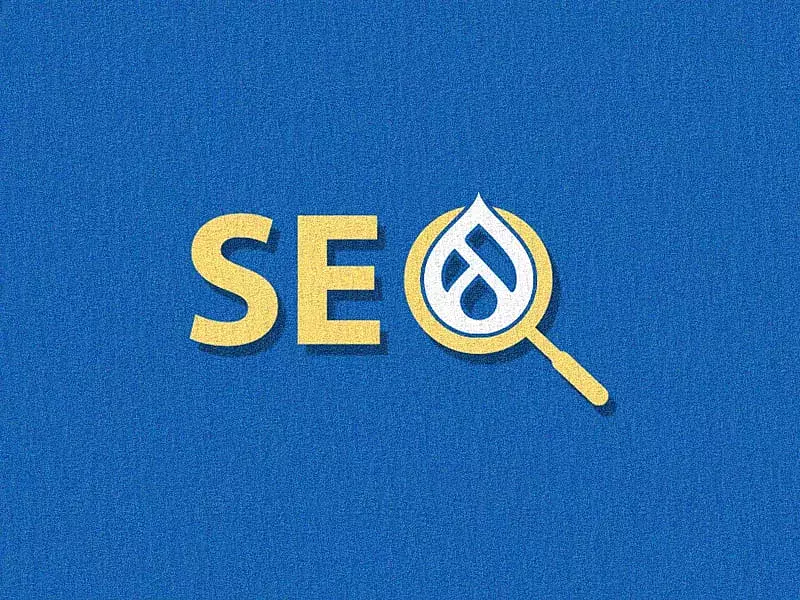Table of contents
- What is off-page SEO
- Why is it important? Does off-page optimization still matter?
- Off-page VS On-page SEO
- Off-page SEO goes beyond backlinks
- Link-building strategies: Quality Vs. Quantity
- Create and Share High-Quality Content
- Utilize Targeted Outreach
- Engage in Guest Posting
- Discover and Fix Broken Links
- Develop Link-Worthy Assets
- Leverage Social Media
- Top Link-Building Tools for SEO Analysis
- Your brand reputation impacts your SEO rankings
- Authority Through Partnerships & Affiliations
- Content Syndication and Guest Posting
- Syndicating Video and Audio Content for link-building
- Is content syndication good for SEO?
- Is guest blogging good for SEO?
- Digital PR and off-page SEO
- Does community engagement impact off-page SEO?
- Forums
- Q&A Platforms
- Comment Marketing
- What are Citations and why do they matter for SEO
- Local business listings and how they impact local SEO
- How to Optimize Google My Business and Local Profiles
- Building Local Backlinks for Niche Relevance
- Off-page SEO checklist – metrics that matter in 2024
- How to measure the ROI of your link-building campaigns
- Organic Traffic Growth
- SERP Ranking
- Optimize for long-term SEO success
- Final thoughts
Strong SEO isn’t just about ticking boxes—it’s about covering all the bases. To improve your site’s search engine rankings, you need more than just keywords. You need to strategize your game plan to stay ahead of your competitors – a plan that results in great SEO metrics even when you’re sound asleep at night while someone in another corner of the world is browsing through your website.
One of the key factors to achieving higher search engine rankings is off-page SEO. In this blog, we’ll focus on off-page SEO and the difference between off-page and on-page SEO. We’ll even help you come up with an effective off-page SEO strategy for your website that improves its authority. Let’s get started!
What is off-page SEO
Off-page SEO or off-site SEO refers to the activities conducted beyond the boundaries of your website to enhance its visibility in search engine results pages (SERPs) and shape how audiences find and interact with your content. These tactics usually take the form of guest posting, backlinks, and social media marketing.
Off-page SEO's primary motive is to rank your website on search engines organically, gaining authority and the trust of your website users. It is an essential part of a strong SEO strategy for your website.
Why is it important? Does off-page optimization still matter?
While Google's algorithm continues to evolve, one thing remains consistent: off-page SEO is a critical factor in determining your website's ranking. By leveraging off-page strategies, websites can significantly enhance their relevance, authority, and credibility in the eyes of search engines, thereby boosting their chances of securing top positions in search results.
With such a scenario in place, more and more complex algorithms can be expected to come into action. That’s why it’s no longer wise to stick to old methods of backlinking to boost your website’s ranking. You need stronger link-building strategies that go beyond backlinks and focus on factors like the relevance of the linking website, anchor text to use for your links, and the overall authority of the linking domain.
No, I’m not saying backlinks are obsolete. But things are more complex than before. Google’s search algorithm wants more than just ordinary backlinks. Today, you need high-quality backlinks from authoritative websites to boost your website rankings. Focus on creating relevant and quality content that brings you natural, organic backlinks from established sources.
Although it’s challenging to determine the exact influence of each SEO factor within search engine algorithms, industry experts widely agree that off-page SEO contributes to a substantial portion—estimated to be at least 50%—of a website's ranking potential. This makes it an indispensable aspect of any successful SEO strategy.
Off-page VS On-page SEO
Off-page and on-page SEO are two of the most important aspects of SEO. You can’t afford to exclude either of the two as Google’s algorithm ranks your website judging the content both on and off your website pages.
Optimizing the content and structure of your web pages comes under on-page SEO. On the contrary, your site’s authority, credibility, and external relationships to improve your visibility and search engine rankings are aspects of off-page SEO.
If done well, both makeup for a strongly effective SEO strategy.
Off-page SEO goes beyond backlinks
As I previously mentioned, your link-building strategies for off-page SEO require more than just backlinks. The quality of your backlinks matters. The two primary types of backlinks are natural or earned links and built or unnatural links.
- Natural (Earned) Links: When you create value-adding content, you earn these links without any prompting.
- Unnatural (Built) Links: SEO experts need to plan and acquire such links.
Effective link-building strategies involve auditing your existing backlink profile. You can use tools like Ahrefs, SEMrush, or Moz to gain insights into your current backlinks and domain authority (DA). Review this data to generate a list of pages with a high volume of links for further backlinks. Ensure the quality of the anchor text remains relevant to your industry. You don’t want identical anchor texts to cause Google penalties. Optimize the current backlinks by disavowing the ones that originate from low-quality sources.
Additionally, make sure to monitor between DoFollow and NoFollow links. DoFollow links bring authority to your site while NoFollow links are usually avoided by search engines. Have a mix of both with a majority of DoFollow links to boost your search engine rankings.
Link-building strategies: Quality Vs. Quantity
When focusing on off-page SEO, it's crucial to understand the quality and authority of the links you're acquiring. Quality backlinks are directly proportional to your website authority.
Building dozens of links from low-quality, spammy websites might seem beneficial, but they won’t do much to boost your search rankings. To truly enhance your SEO, it's essential to concentrate your link-building efforts on reputable sites with high link equity.
Here are six primary factors that influence the value a link can pass to your website:
- Anchor Text: The specific words used to hyperlink to your site play a significant role in signaling relevance.
- Link Age and Freshness: How recent or old the link is can impact its effectiveness.
- Link Quantity on the Page: A page with too many links can dilute the value passed to your site.
- Topic Relevance: The linking site’s content should closely relate to the subject matter of your own for the best impact.
- Trustworthiness of the Linking Site: Sites with a strong reputation are more likely to pass valuable authority.
- Authority of the Linking Site and Page: Links from authoritative websites or high-ranking pages carry more weight in search engines.
Tools like Ahrefs, Semrush, and LinkResearchTools are invaluable for assessing the potential value of a link, helping you make smarter decisions for your off-page SEO strategy.
With all that said and considered, here’s how you can assess an off-page SEO strategy that prioritizes quality over quantity:
Create and Share High-Quality Content
Content remains the backbone of SEO. Successful websites with strong SEO typically maintain a well-stocked library of blog posts. Not only do these serve as valuable resources for readers, but they are also an organic way to earn quality backlinks. Google prioritizes naturally obtained links, which involve no exchange or transactions.
However, not all content draws links. Many make the mistake of churning out low-quality, duplicated articles that fail to capture attention. Truly link-worthy content requires a strong foundation, which means conducting thorough keyword research, analyzing competitors, and identifying content gaps. By publishing unique, in-depth articles, you not only drive organic traffic but also attract unsolicited backlinks from other sites.
Utilize Targeted Outreach
Targeted outreach is a time-tested and direct approach to secure high-quality backlinks. This method involves contacting relevant websites to propose including your content in their existing pages. While it's straightforward, the key lies in your pitch's relevance and value. Site owners have the final say, and they might even ask for a reciprocal favor.
Begin by evaluating whether your content is genuinely worth linking to. Once polished, seek out websites where your content would naturally fit. Crafting tailored, engaging outreach emails can significantly improve your chances of acceptance.
Engage in Guest Posting
Guest posting remains a popular way to build links, offering mutual benefits. For you, it provides a platform to acquire do-follow backlinks; for the host site, it's free content that can drive traffic. To succeed with guest posting, maintain the same high standards you apply to your own blog.
Focus on submitting high-quality articles to niche-relevant sites that match your target audience. For instance, a company selling workout gear might target fitness blogs or local gyms. Additionally, if you have a blog, consider hosting guest articles from credible authors to lighten your content creation load.
Discover and Fix Broken Links
Broken link building is a smart, sustainable strategy. This technique involves identifying broken links on other websites and suggesting your content as a suitable replacement. Links can break for many reasons—site restructuring, URL changes, or domain expiration—creating opportunities to offer your content as a replacement.
To maximize success, follow the same guidelines as targeted outreach: inform the site owner of the broken link and present a relevant, keyword-optimized piece that fills the gap.
Develop Link-Worthy Assets
Articles aren't the only way to gain links. Consider creating other shareable assets like infographics, data visualizations, and free tools. Well-designed infographics, for example, can encourage other sites to embed them, potentially leading to backlinks. Additionally, offering valuable free tools can draw natural links as websites voluntarily include them in resource lists or recommendations.
These assets not only enhance your website’s authority but also increase your brand’s visibility across the web.
Leverage Social Media
Social media remains a potent channel for link-building. While links from social platforms often carry a no-follow tag, they play a crucial role in boosting your content’s visibility. When you share high-quality, engaging content on social media, it has the potential to reach influencers or website owners who might link back to your content.
Although social media links don’t contribute to direct SEO ranking, they can generate valuable referral traffic and amplify your reach if your content gains traction.
One popular example of using social media to enhance SEO is Buffer. They use blogging and social media posting for their shareable content. Such a strategy has not only proven to boost their social engagement but has also attracted high-quality backlinks and enhanced their overall SEO.
Top Link-Building Tools for SEO Analysis
- Ahrefs: It’s great for backlink analysis and competitor research.
- SEMrush: This one offers comprehensive link-building tools and outreach options.
- BuzzStream: As the name suggests, this tool streamlines the outreach process.
- LinkResearchTools: You can use this tool for evaluating the quality of backlinks.
Your brand reputation impacts your SEO rankings
Brand mentions, whether linked or unlinked, are valuable off-page SEO assets. Search engines consider them as trust signals, especially if they come from reputable sites or social media platforms. That’s why recognizing your brand’s reputation and influence go beyond traditional backlink metrics.
Positive online reviews on platforms like Google My Business, Yelp, and industry-specific forums enhance your site’s authority. Customer feedback is not only a trust signal but can also improve your visibility in local searches. Responding to reviews and addressing customer concerns shows that your brand values engagement.
Additionally, collaborating with industry experts, getting featured in reputable publications, and forming strategic partnerships take your brand’s authority up by a notch. Such measures include co-hosting webinars, participating in expert roundups, or sponsoring events. Affiliations as such add credibility to your website.
Authority Through Partnerships & Affiliations
Collaborating with industry experts, getting featured in reputable publications, and forming strategic partnerships elevate your brand’s authority. This can include co-hosting webinars, participating in expert roundups, or sponsoring events. Such affiliations are seen as endorsements, adding credibility to your site.
Content Syndication and Guest Posting
Content syndication is nothing but putting your best-performing content ahead of others and distributing it across third-party platforms. Doing so ensures that your content reaches a broader and highly targeted audience. Guest posting, on the other hand, is about creating fresh content exclusively for a partner’s website. This strategy not only adds value to their audience but also includes a backlink to your site, encouraging their readers to visit your pages.
Both strategies are effective in expanding brand visibility and boosting audience reach. However, they have distinct differences that impact your content distribution approach.
Syndicating Video and Audio Content for link-building
Content in video and audio formats is highly shareable and can be leveraged for SEO. When syndicating podcasts or webinars, ensure you include backlinks to your site in the show descriptions, video captions, or episode notes. This drives traffic, increases engagement, and provides the chance to earn high-quality backlinks.
Is content syndication good for SEO?
Content syndication can supercharge your content marketing strategy, maximizing your return on investment (ROI), hence, bringing greater search engine rankings to your website. Here’s how content syndication can prove to be beneficial for your website:
It expands your audience reach
Content syndication involves republishing your existing content on well-established platforms, instantly broadening your reach. This strategy enhances brand visibility and awareness, as you tap into audiences that are already engaged with these platforms. Success lies in choosing publications where your target audience hangs out or partnering with brands that cater to the same market — without being direct competitors.
It boosts your SEO performance
By sharing content on authoritative sites that link back to your own, you're enhancing your site's credibility in Google's eyes. Backlinks from high-quality sources increase your domain's authority, pushing your content higher in search rankings. Content syndication can also address duplicate content issues, as linking back to the source signals transparency and avoids potential SEO penalties.
It drives lead generation and conversion
Syndicated content, especially when it's educational and relevant to your audience's pain points, builds trust and encourages conversions. It’s a strong top-of-the-funnel tactic that draws a broader audience to your website, where you can nurture them through lead magnets and targeted campaigns, guiding them down the sales funnel.
It enhances brand authority
Publishing content on respected third-party sites not only helps with link-building but also positions you as an industry expert. When your work appears on reputable platforms, potential customers are more likely to trust your brand. Content syndication can thus solidify your reputation and establish you as a thought leader in your field.
Is guest blogging good for SEO?
Guest posting continues to be a key player in the SEO realm in 2024. When managed effectively, focusing on high-quality content and relevant backlinks can significantly boost your search visibility and domain authority.
Quality guest posts generate strong backlinks, enhancing your domain’s authority and elevating your search engine rankings. They also provide an opportunity to create engaging content that signals value to search engines, leading to potential SEO gains. Effective keyword integration is crucial, but today, it’s more about weaving keywords naturally into valuable content rather than overstuffing.
Identifying the right guest posting opportunities involves looking for sites with a high DA, engaged readership, and content that aligns with your niche. Use tools like Moz’s Link Explorer to check a site's authority. Customize your pitches to show how your content will add value to their audience.
Guest Posting as a Traffic Booster
Content is still king, and guest posts are like powerful ambassadors for your brand. Posting on well-trafficked sites exposes you to new audiences who might not have encountered your brand otherwise. A well-placed guest post can drive targeted traffic to your site, increasing engagement and potential conversions. Think of guest posts as invitations to new visitors—if they like what they see, they’ll want to explore more.
Building Brand Awareness and Credibility
Guest posts are a powerful way to amplify brand visibility. Instead of solely relying on your blog, they allow you to tap into established audiences on reputable platforms, expanding your reach. This not only builds awareness but also enhances credibility. Being invited to contribute to respected industry sites establishes your authority and trustworthiness.
High-quality content that educates, solves problems or entertains will leave a lasting impression, positioning your brand as a thought leader. Through strategic guest posting, you can solidify your reputation and create meaningful connections with potential clients.
Experiment with different formats like infographics, videos, podcasts, and data visualizations. These formats are considered highly shareable content and tend to attract backlinks from multiple sources.
Digital PR and off-page SEO
A well-executed digital PR strategy can significantly enhance your off-page SEO, driving both visibility and authority for your website. Research shows that the top-ranking pages on Google have nearly four times as many backlinks as those in lower positions, highlighting the importance of link-building through PR. Here’s how digital PR impacts your off-page SEO rankings:
- Backlink Acquisition: Digital PR helps secure high-quality backlinks. These backlinks are your endorsements from reputable sources, backing up your site’s authority. Techniques like media outreach, guest blogging, influencer partnerships, and securing awards can generate valuable backlinks.
- Boosting Social Media Visibility: Engaging content shared through digital PR campaigns can spark social media conversations, expanding your brand's reach. Social signals such as likes, shares, and comments not only increase visibility but also signal content relevance to search engines, further boosting SEO.
- Positive Mentions and Brand Authority: Mentions of your brand in blogs, articles, or social media posts—whether or not they contain a direct link—can drive traffic and improve rankings. These mentions contribute to building your brand authority, helping position you as an industry leader, and attracting quality backlinks.
- Thought Leadership and Consumer Trust: Content that showcases thought leadership, such as expert articles or videos, can elevate your brand's authority, influence purchasing decisions, and earn high-quality backlinks. When done right, thought leadership content also tends to rank well on search engines, further strengthening your off-page SEO.
All things considered, having an effective strategy in place for digital PR in SEO can, therefore, bring you tons of complementary gains. Make sure to target media outlets. Look for and connect with publications relevant to your niche. Create high-quality, keyword-rich content that informs and engages your audience.
Additionally, cultivate genuine connections with influencers, journalists, and bloggers to support your SEO efforts. Track mentions regularly and maintain a positive brand presence.
Does community engagement impact off-page SEO?
Community engagement in the form of forums, Q&A sites, and comment marketing can add value in various ways indirectly. They can help establish a strong brand presence, therefore, contributing towards elevating your search engine rankings.
Forums
Engaging in online forums and Q&A sites like Reddit and Quora can help build your authority in your niche. Answering questions, sharing insights, and participating in discussions not only provide value to the community but also establish your expertise. For SEO, these interactions can lead to organic backlinks and increase your website’s visibility. Focus on providing well-thought-out responses rather than spamming links.
Q&A Platforms
Q&A platforms such as Quora, Stack Overflow, and Yahoo Answers (though less prominent now) are excellent venues for showcasing your expertise. Search engines often give these pages high visibility, and linking to relevant blog posts or articles can drive traffic to your site. The key is to participate genuinely and avoid over-promotion. Aim to answer questions that directly align with your niche, and don’t forget to optimize your profile with links back to your website.
Comment Marketing
Comment marketing involves leaving insightful, non-spammy comments on blogs, news sites, or videos within your industry. While it’s a less direct form of link-building, these interactions can result in valuable traffic, increased engagement, and potential backlinks. Ensure your comments add value to the conversation—avoid generic or promotional language. If a discussion is about a topic you’ve covered on your site, link to relevant content where appropriate.
What are Citations and why do they matter for SEO
While link-building is a key focus in off-page SEO, it’s not the only way to boost your brand’s online presence. Google’s John Mueller notes that unlinked mentions don’t directly pass equity-like links, but the Search Quality Evaluators’ Guidelines highlight how mentions, such as educational degrees, expert co-authors, or citations, contribute to a positive reputation, enhancing professional credibility.
Even when a mention doesn’t result in a link, an authoritative reference to your brand or business can still improve search engines’ perceptions of your reputation. For example, a mention on a reputable site like Homes & Gardens strengthens the Duchy of Cornwall Nursery’s reputation, even without a hyperlink.
Local brands can further leverage this by securing structured citations on platforms like Google, Yelp, and Apple Maps, alongside unstructured mentions on blogs or news sites. These efforts are crucial for building brand recognition and enhancing local SEO.
Local business listings and how they impact local SEO
Local SEO is a strategic approach that enhances your business's online presence within a specific geographic area. It's essential for businesses that serve local customers, such as restaurants, retail stores, and service providers, to boost visibility and attract more relevant traffic.
To effectively optimize for local search, businesses should focus on creating location-tailored content, securing quality local citations, and ensuring their Google My Business (GMB) listing is fully optimized. For instance, a local bakery can write blog posts on nearby community events, register on local business directories, and keep their GMB profile current with accurate information and engaging visuals.
Focusing on local SEO helps businesses rank higher in local search results, making them more visible to nearby customers. This increased online presence translates into greater foot traffic, higher engagement, and ultimately, more sales and brand recognition.
Prioritize earning backlinks from local sources to boost your authority in a specific geographic area. Local news outlets, regional blogs, or community events often link to local businesses, improving your search visibility. Participating in local sponsorships, collaborations, and charity events is another great way to earn local backlinks.
How to Optimize Google My Business and Local Profiles
Google My Business (GMB) is one of the most important tools for local SEO. To optimize your profile:
- Add accurate and up-to-date information (e.g., address, hours, phone number).
- Upload high-quality photos of your business.
- Respond to customer reviews to show engagement.
- Post regular updates, such as promotions or events.
- Enable messaging to improve customer communication.
Building Local Backlinks for Niche Relevance
Focus on earning backlinks from local sources to boost your authority in a specific geographic area. Local news outlets, regional blogs, or community events often link to local businesses, improving your search visibility. Participating in local sponsorships, collaborations, and charity events is another great way to earn local backlinks.
Off-page SEO checklist – metrics that matter in 2024
According to our 2024 Ranking Factors study, a domain's Authority Score is the sixth most significant indicator of a page's ranking potential. Here’s the ranking for the other top off-page SEO metrics:
- Page Authority Score: A measure of the authority of the specific page.
- Number of Referring IPs (domain): The count of unique IP addresses linking to the domain.
- Number of Referring Domains (domain): The number of distinct domains that link back to the domain.
- Number of Referring Domains (URL): The number of different domains linking directly to the page.
- Number of Backlinks (domain): The total backlinks targeting the domain.
- Number of Backlinks (URL): The total backlinks pointing to the individual page.
You can explore these metrics for any website using Semrush’s Backlink Analytics tool. Simply input the domain, hit “Analyze,” and you’ll get a comprehensive breakdown of the backlink data. Besides the above-mentioned metrics, you also need to keep a keen eye on brand mentions and track how often your content is shared and engaged with on social platforms.
How to measure the ROI of your link-building campaigns
To effectively measure the ROI of your link-building campaigns, it's essential to track all the above-mentioned key metrics that indicate the success of your efforts. Higher values in these metrics directly reflect the impact of your backlinks on driving traffic and ultimately, boosting sales.
Organic Traffic Growth
Improved organic traffic after implementing a link-building strategy is a clear sign of success. Tools like Google Analytics or SEMRush help track visitor data, including page views and unique visitors. These insights reveal if your backlinks are generating traffic. By analyzing the traffic sources, especially referral data, you can directly correlate backlinks with traffic increases, guiding you to optimize your sales funnel.
SERP Ranking
Backlinks play a crucial role in improving SERP ranking. Websites ranking higher in Google search results see significantly better click-through rates (CTR). Tools like Moz’s Link Explorer and SEMRush’s Position Tracking help monitor your site’s ranking and visibility. A higher Domain Authority (DA) indicates stronger search performance, which correlates with increased traffic and potential sales.
By consistently analyzing these metrics, you can evaluate how well your link-building strategies are working, making adjustments to improve both visibility and revenue.
Optimize for long-term SEO success
Building sustainable authority takes time, but the results are worth the effort. Focus on earning high-quality backlinks, maintaining a consistent brand presence, and cultivating relationships within your niche. Long-term strategies include ongoing content marketing, social media engagement, and cultivating a loyal customer base who will continue to link to your site.
Final thoughts
Off-page SEO shall continue to evolve in the coming days. If anything, we can expect even more emphasis on brand reputation, user experience, and trust signals. The growing influence of AI in content creation and link-building strategies will also impact how websites acquire backlinks. Businesses will need to be more strategic and focused on building lasting, genuine relationships to improve their SEO.
Start building a solid backlink profile by focusing on quality over quantity. Monitor brand awareness, optimize your social media profiles, and leverage social signals for SEO. Invest in guest blogging and content syndication to boost visibility. Track your metrics regularly to gauge the effectiveness of your off-page SEO strategies.
By consistently applying these strategies and focusing on building genuine authority, you’ll see sustainable growth in your search engine rankings and overall online presence.
Want to offload your on-page/off-page SEO efforts to experts who know the drill? Let us help you craft a winning SEO strategy that drives results. Explore our SEO services today!








